As Liverpool prepare to take on Middlesbrough at the Riverside, Jeff Goulding looks to 1998, as Gerard Houllier oversaw the end of the Spice Boys era.
We could have travelled back to a barnstormer of a match at Riverside, in 1996, for this classic match feature. This was a game that typified the Roy Evans era: Liverpool were a team frightening to opponents in attack, but terrifying for their supporters in defence. If you think today’s back four is flawed, you should have seen this one.
This was also a game stolen by the ‘White Feather’, Fabrizio Ravanelli, with a stunning hat-trick on his debut. I mention it because it truly was a classic match, but not one I can recall with much fondness. Firstly Liverpool threw away the lead three times. Secondly, Ravanelli was the one that got away for Liverpool.
Had we managed to sign such a prolific striker I am convinced the Reds could have added number 19 to their title haul. Sadly the club refused to bow to the player’s demands and the opportunity to sign a goal machine went begging.
So it is to Boxing Day, 1998 we go. Liverpool travel to the North East to take on Bryan Robson’s Middlesborough. A great storm is lashing the country, closing roads and disrupting electricity supplies. The Spice Girls have a Christmas No. 1 for the second year running, but the Reds’ very own Spice Boys are living on borrowed time.
The ’90s have been a nightmare for Liverpool supporters who had grown up on a diet of unparalleled success. A new generation was emerging for whom league titles and European cups were just stories their parents told them.
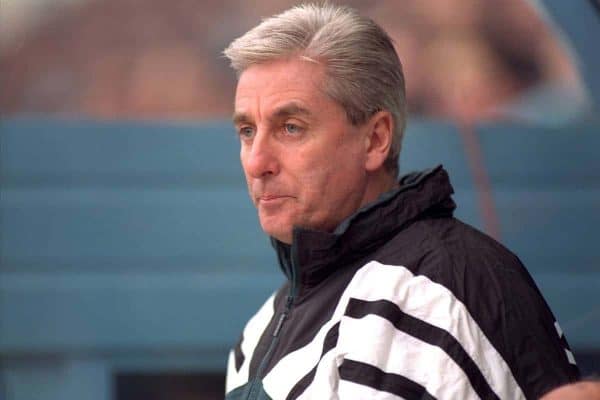
During the ’80s the Reds had amassed seven First Division titles, two FA Cups, four League Cups and two European Cups. Fifteen major honours in all. The ’90s began with our last league title, but by the time Gerard Houllier led the Reds out at the Riverside Stadium, eight years later, they had collected just two more trophies.
After gorging on the banquet, Liverpool supporters were having to make do with scraps. To make matters worse, our great rivals from the other end of the M62, once firmly in our shadow, were enjoying their days in the sun.
The club had turned to Roy Evans after dispensing with the services of former captain Graeme Souness as manager. It had seemed the obvious choice. Souness had set about dismantling the Liverpool way in an effort to modernise. It had gone disastrously wrong and a return to tradition with a graduate of the famous Boot Room was a popular choice.
Evans’ reign got off to a good start. The club secured the League Cup in his first season in charge and the team were playing the kind of free-flowing attacking football the old guard had grown up with. As old favourites like John Barnes and Ian Rush departed the scene, new younger favourites replaced them.
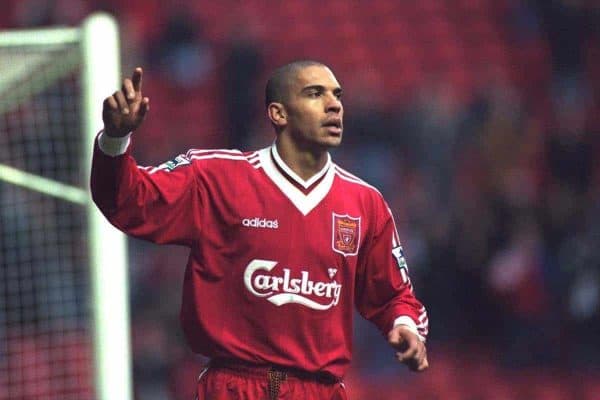
The academy, under the guidance of Steve Heighway, had produced Robbie Fowler, Jamie Carragher, Steve McManaman, David Thompson, Mike Marsh and Michael Owen making the breakthrough. The youth setup reached its pinnacle with the capture of the FA Youth Cup in 1996, but for the first team things were starting to unravel.
The Reds had attempted to keep pace with their rivals, breaking the British transfer record with the capture of Stan Collymore for £8 million in 1995. Stories of poor squad discipline were rife and the team soon obtained the unwanted tag of Spice Boys. The low point was the infamous white suit debacle in the 1996 FA Cup final.
The players had walked onto the pitch, prior to kick-off looking like refugees from the ’70s movie Saturday Night Fever. It left us all feeling cold. The result, a 1-0 defeat to Manchester United, wrote the epitaph for a team that lacked both the fight and the dedication needed to reach the required standard.
Arguably, had this been any other club, Evans might have been relieved of his duties at the end of the 1995/96 season. But parting with a legend who had served us so selflessly for so long seemed beyond club owner, David Moores. Evans limped on for a further two seasons, managing fourth- and third-placed finishes respectively.
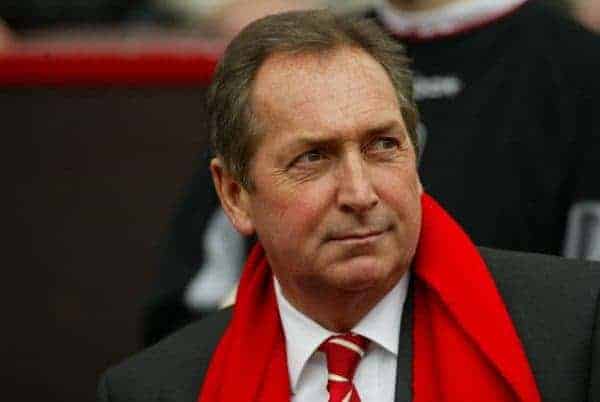
In July 1998, Moores once more found himself facing an unpalatable decision in relation to his manager. Where decisiveness was needed, he dithered and embarked on an experiment that was so obviously doomed to failure. In July 1998, he invited Gerrard Houllier, a man who had managed the French national team and overseen the emergence of a golden generation of French footballers, who would go on to conquer the world, to become joint-manager alongside Evans.
As many predicted, it didn’t work, and after the Reds crashed out of the League Cup in November after a 3-1 defeat to Tottenham Hotspur, Roy tendered his resignation and the Frenchman, Houllier, assumed full control. He began a programme of modernisation that would return pride to the supporters and trophies to the cabinet.
Ex-players like Gerrard and Carragher still talk affectionately about his influence on their careers. For supporters like me, he will always be remembered for one of the most memorable seasons in the club’s history, the historic treble season of 2000/01.
The Reds’ opponents on Boxing Day, 1998 were a side managed by Bryan Robson, former captain of Manchester United. He had done a good job and the Boro were unbeaten at home for 14 months prior to Liverpool’s visit. The men from Anfield had won three of the previous five games, losing the other two. They were sitting in mid-table and struggling for consistency. Their opponents were sixth.
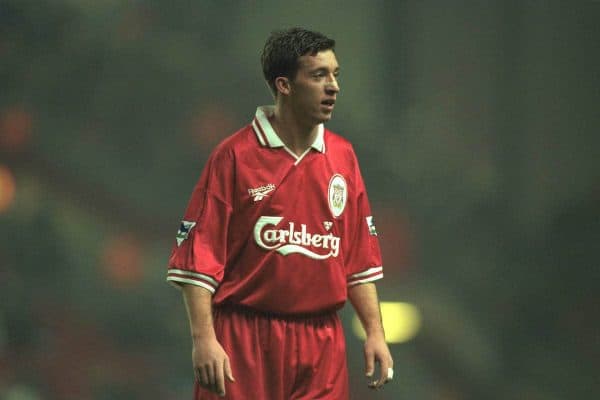
Speculation about the future of Fowler surrounded the fixture, with Arsenal said to have already agreed a deal with the Toxteth-born player. McManaman was another player whose future was in doubt. His contract was running out and Liverpool were facing the prospect of losing him and any transfer fee, as a result of the Bosman ruling.
For their part Middlesborough boasted the likes of Gary Pallister, another former United player, Paul Gascoigne and Andy Townsend, famous for stinking up ITV’s commentary team these days. Providing a touch of international flair were players like Hamilton Ricard and Gianluca Festa.
The game got under way in high winds and both sides were going for the win. The weather was having an effect and on the 15-minute mark David James failed to get sufficient distance on a clearance, as the wind held the ball up.
Paul Ince attempted to head it clear, but he only succeeded in putting Ricard through on goal. The Colombian already had 13 goals to his name, but somehow put the ball wide.
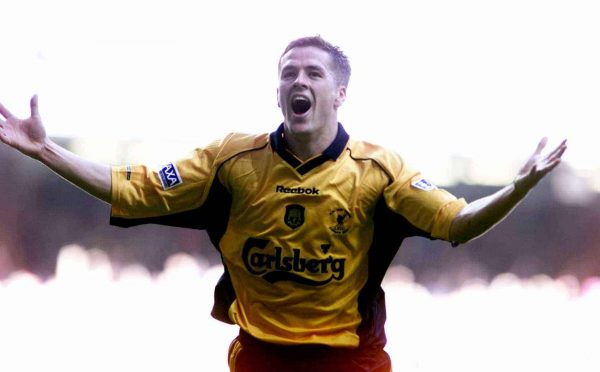
Two minutes later the Reds were in front. Liverpool won a corner, Patrick Berger whipped the ball in and this time Ince’s header found its mark, allowing Owen to convert from close range. Houllier would go on to sort out Liverpool’s defensive frailties, signing Sami Hyypia and Stephane Henchoz and restoring calm to the back four, but for this game in the North East, he would have to settle for a back line capable of self destructing at any given moment.
Boro’s equaliser was a classic example of his team’s inability to defend, a flaw that had ultimately cost Evans the chance to win a league title and his job. Middlesborough attacked and James rushed from his goal in an attempt to clear a Gascoigne cross. He was now stranded in no man’s land and Brian Dean capitalised, heading the ball into the net on 32 minutes, despite the attentions of Phil Babb.
It was a goal symptomatic of Liverpool’s problems. Poor defending had dogged them throughout the second half of the decade. However, when it came to attack, the Reds knew what they were doing. Just two minutes after Boro’s leveller, Berger was involved again; spraying a delightful 40-yard pass to Owen. The young striker hit a shot straight at ‘keeper Mark Schwarzer, who spilled it, only for Pallister passed the ball back into his arms.

The referee adjudged this to be a back-pass and awarded the Reds a free-kick dead centre, in line with the penalty spot. Ince stood over the ball, but instead of taking the chance himself, he elected to tee up Jamie Redknapp, who smashed it in from 20 yards. 2-1, but this was a scoreline no Reds fan could be comfortable with, especially away from home.
Liverpool hung on though and with 15 minutes to go Houllier sent on McManaman, replacing Owen. His mission was to cause mayhem in the Boro defence and ease the pressure on his own creaking back-four. He delivered and the Reds began to grow in confidence.
However, it would be Norwegian defender Vegard Heggem who would steal the show. With the game almost over, the player we had signed from Rosenborg won the ball on the right, just inside the Boro half. He proceeded to glide past four defenders and found himself in the penalty area, where he calmly chipped Schwarzer to grab his first goal for the club and seal the the points for Liverpool.
Liverpool would end the season with a disappointing seventh-placed finish. They went out of the League Cup and FA Cup in the fourth round and they’d disappear from the UEFA Cup in the third round of the competition. In many ways this was another season of underachievement, but it was also the beginning of a new stage in the club’s history: the Houllier era.
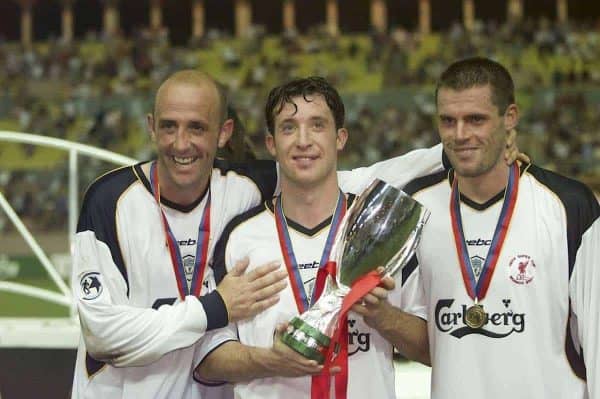
Gerard dragged the club out of the ’90s malaise, restored its sense of professionalism and pride. Above all he filled the trophy cabinet, winning five trophies in a single calendar year in 2001.
These days supporters seem to have mixed feelings about the man we affectionately referred to as Ged. For me he will always be remembered as one of our great managers.
That season, 2000/01, will live long in the memory and the homecoming parade in particular is up there as one of the great days I’ve had as a Liverpool fan. The famine was over.
Liverpool were back on the trophy trail and it all got started in the winter of 1998.
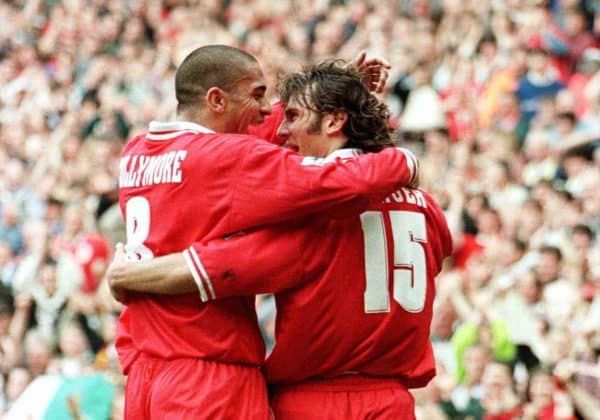

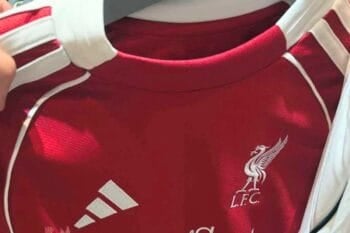
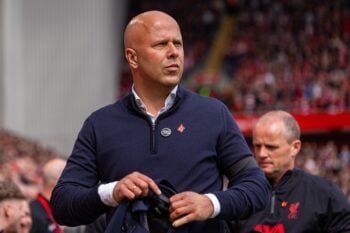
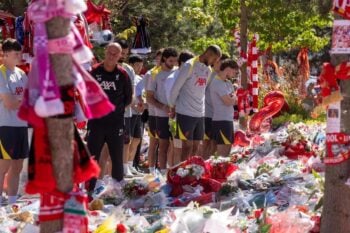
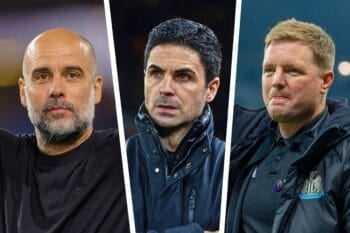
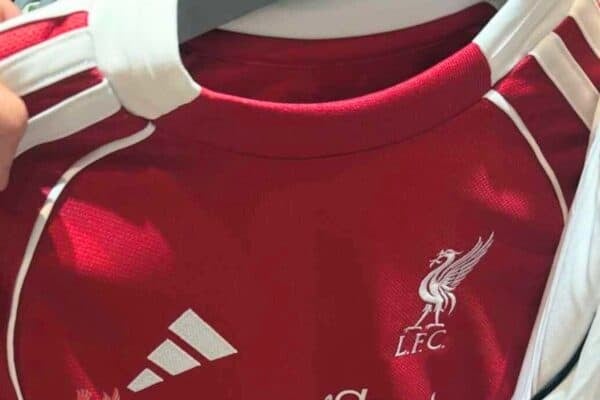
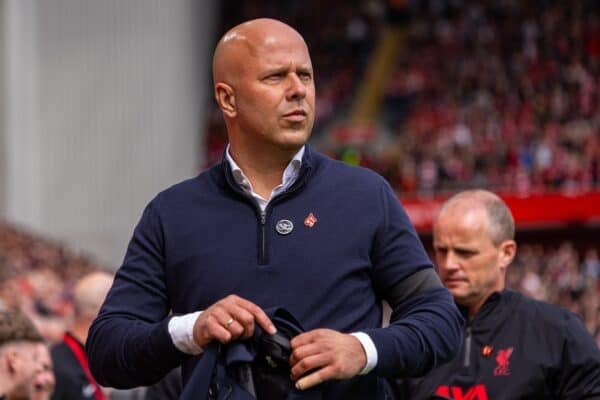
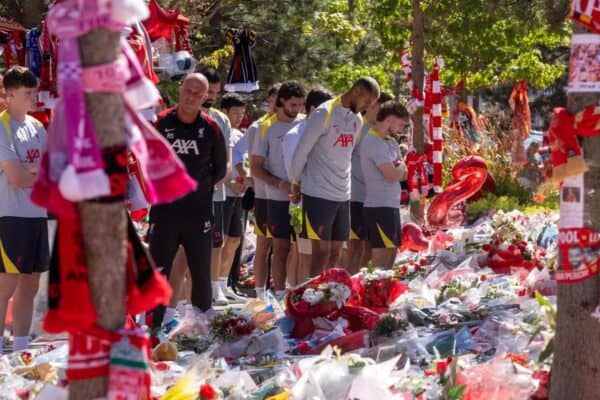
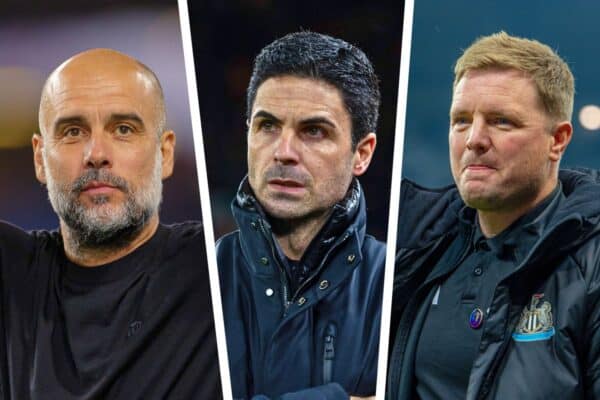









Fan Comments